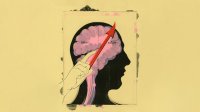How to Teach Students Ethical Decision-Making in Journalism Class
With thoughtful guidance from their advisers, young journalists can learn how to proceed when it comes to writing about sensitive topics.
Your content has been saved!
Go to My Saved Content.As adviser to The Gator, an online high school student newspaper, I’m deeply moved to see an ethos of ethical decision-making blossom in passionate young student journalists. They approach their critical work with a deep sensitivity to its potential consequences—whether emotional, reputational, or physical—infusing each story with a spirit of empathy and conscientiousness that genuinely moves me.
Simultaneously, I advocate for the incomparable value of experience, an asset that, as a wise mentor once told me, regrettably cannot be imparted but must be personally lived. My goal is to ensure that, irrespective of the challenges or rewards these experiences may entail, they consistently function as valuable opportunities for personal introspection and growth.
To be perfectly clear, my responsibility is to steer students on their path to making well-informed decisions independently, rather than dictating those decisions for them. That method of guidance is especially vital in the context of The Gator, where my students confront such challenging stories.
Mitigate Harm
In October, our current editor-in-chief, Amelia, covered a story on racist graffiti aimed at a custodian. I aided Amelia in reaching an informed decision on reporting the incident, imagining possible responses from various stakeholders, including the school community and the victim. The aims of the procedure extended beyond merely making editorial decisions; it was an exercise in nurturing responsible, empathetic journalism.
In this case, Amelia thoughtfully evaluated the impact of reporting on racist graffiti, particularly its effects on the targeted individual. Instead of instructing her on these steps, I encouraged her active exploration. She consulted with me, her peers, and other adults, weighing the implications of publicizing such remarks. Through that reflective process, Amelia learned by doing. Ultimately, she opted to include the comments, aiming for transparency to highlight the harm caused—and to facilitate community healing through candid dialogue.
This experience also subsequently empowered Amelia to effectively navigate the school’s response to the Israel-Hamas war, a subject laden with political complexities and necessitating careful reporting. She expressed concerns about quoting students and faculty members, recognizing that even their most apolitical comments could potentially make them targets. That careful consideration further exemplified her commitment to responsible journalism and the safety of her community.
Amelia’s approach is not an isolated case; it reflects a broader culture of conscientious journalism. Gator journalist Edward recently considered the ethics of reporting on items missing around the school. He deliberated on whether to term them as “missing” or “stolen,” recognizing the significance of the distinction beyond source claims. His thorough ethical contemplation highlights another facet of responsible journalism.
Listen to Inform Wise Decision-Making
In addition to engaging in discussions about news-related topics, my students come to me to delve into the ramifications of sharing their individual experiences online. In these moments, my role shifts to facilitator and one who listens attentively as I establish a secure environment for students to express themselves freely.
I offer guidance when they seek it, serving as a receptive ear as they assume complete ownership of their content and contemplate its broader impact.
For instance, in 2021, a student wrote an award-winning piece, “As a Russian American, I Stand With Ukraine,” reflecting a deep personal connection. A year prior, an editor had shared a poignant opinion piece about her battle with brain cancer, marking a significant personal anniversary.
That spring, then editor-in-chief Karly wrote an opinion piece identifying herself as a conservative in a largely liberal community. Prior to publishing that piece, Karly confided to me her apprehension regarding potential ostracism, particularly in the wake of the divisive 2020 presidential election. After I listened to her, she expressed a sentiment that would later find its way into her article: “No one should ever have to feel that their opinion is deemed invalid.” Her article may not have received accolades, but it’s a piece I still take pride in for her decision to publish. She boldly expressed her truth, and all I had to do was listen.
Stay in Your Lane
Earlier this year, current editor-in-chief Amelia expressed her need for me to consult with her before making any changes, no matter how minor, to a writer’s work. She was completely correct in pointing out that not doing so could potentially undermine her role as the chief editor and risk damaging the trust that writers have in her.
While Amelia appreciated my receptiveness to her feedback and the positivity of my response, it is she who deserves praise for having the courage to express her concerns. The experience served as a reminder that I need to trust her and her colleagues, regardless of the relatively youthful age of the newsroom this year.
That incident highlighted not only Amelia’s deep respect for the newspaper and her commitment to maintaining student ownership, but also her unwavering dedication to always trying to do what’s right. For educators, it’s the highest aspiration we could seek to uphold.
